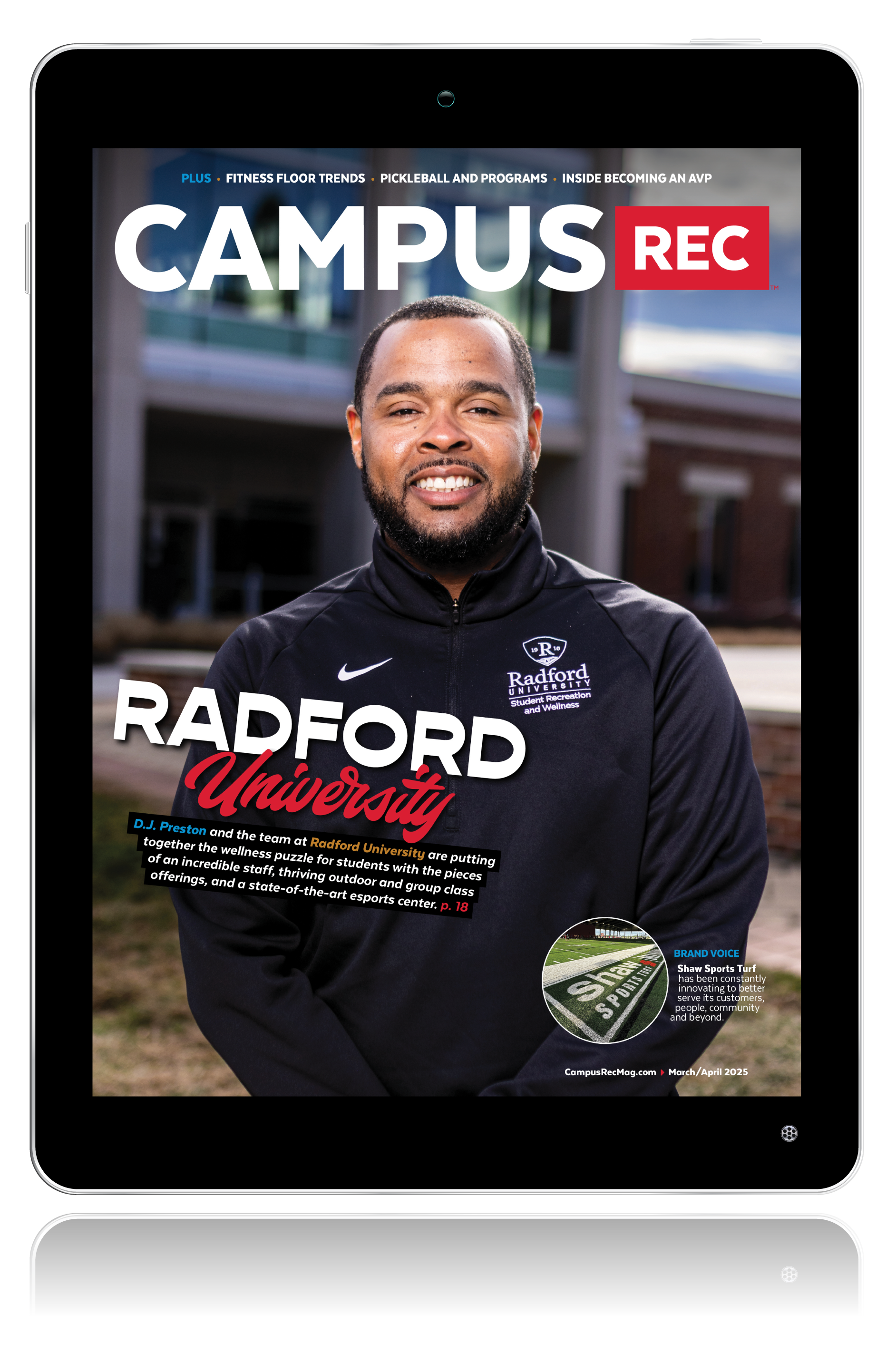At the University of Colorado-Boulder (CU Boulder), Recreation Services staff are allowed the opportunity to use two hours of paid administrative leave per month. This staff wellness policy was first launched as a pilot program in January by the Division of Student Affairs.
Rachel Leuthauser, the program director of Communication and Marketing for Division of Student Affairs at CU Boulder, said the well-being of employees is critical to the success of the department.
“Enhancing the staff experience has been a priority for our Student Affairs leadership team,” said Leuthauser. “After a successful pilot, and thanks to the work of Student Affairs’ Human Resources department and CU Boulder’s Health and Wellness Services, the policy was adopted in May to continue creating a culture of well-being that benefits our staff and campus community.”
Leuthauser said staff are encouraged to be intentional with taking time off to engage in meaningful wellness activities. Also, they are pointed toward planning and requesting their wellness time off in advance.
Staff Wellness Policy Features
The policy allows full-time university staff to engage in meaningful wellness activities that relate to the eight dimensions of wellness. Leuthauser said those dimensions include:
- The occupational dimension recognizes personal satisfaction and enrichment in one’s life through work.
- The physical dimension recognizes the need for regular physical activity.
- The social dimension encourages contributing to one’s environment and community.
- The intellectual dimension recognizes one’s creative, stimulating mental activities.
- The spiritual dimension recognizes the search for meaning and purpose in human existence.
- The emotional dimension recognizes awareness and acceptance of one’s feelings.
- The environmental dimension includes respect and preservation of nature and promotes physical and physiological safety in personal and professional environments.
- The financial dimension includes understanding financial processes related to savings, income and debt, as well as planning toward long-term financial goals.
“Staff working for Recreation Services are leveraging the monthly wellness leave from a self-care framework by participating in activities such as going on hikes before or after work, spending dedicated time with loved ones, meeting with a financial planner and much more,” said Leuthauser. “Staff are aware of and value the ways these opportunities connect with a specific dimension of wellness.”
One positive example of the policy she cited was a staff member who recently coordinated a department bike ride using the wellness leave that aligned with Colorado’s annual Bike to Work Day.
“Staff who participated could connect with one another through community cycling, and rode to several organized bike stations,” said Leuthauser. “As they learned about the policy and how to fit it into their schedules, the number of people using wellness leave increased. In April, May and June, about 45% of our 850 staff in the Division of Student Affairs used wellness time each month.”
Other Staff Care Strategies and Tips
CU Boulder Recreation Services also offers employee-only fitness classes at the Rec Center. Leuthauser said employees have access to a variety of services and resources offered by Health and Wellness Services. Some examples include:
- Faculty and Staff Assistance Program workshops. These cover topics like financial planning, family caretaking and compassion fatigue.
- Access to Academic LiveCare. This is a free telehealth platform for mental health and medical appointments available to employees and their families.
- The Annual Health and Wellness Summit. It provides a one-stop-shop for faculty, staff and students to learn more about resources and support available at CU Boulder.
- The Employee Benefits and Wellness Fair. CU Boulder employees can learn about resources and programs on campus and around the local community.
When caring for staff, Leuthauser advised for campuses to create opportunities to show empathy and compassion. While leaders can develop policies like wellness leave, she said supervisors and teammates should be empowered to cultivate an environment where it’s safe and welcomed to participate. This thinking is shared by Anthony Price, the director of CU Boulder Recreation Services.
“As a senior leader for the Rec, it’s important not only to share the wellness leave policy with my team but to model the use of the policy as well,” said Price. “I periodically share my leave experiences with colleagues, demonstrating the value and personal impact for my wellbeing.”
Want more updates and information on how to improve the overall well-being of your campus rec staff? Sign up for a digital subscription here.










